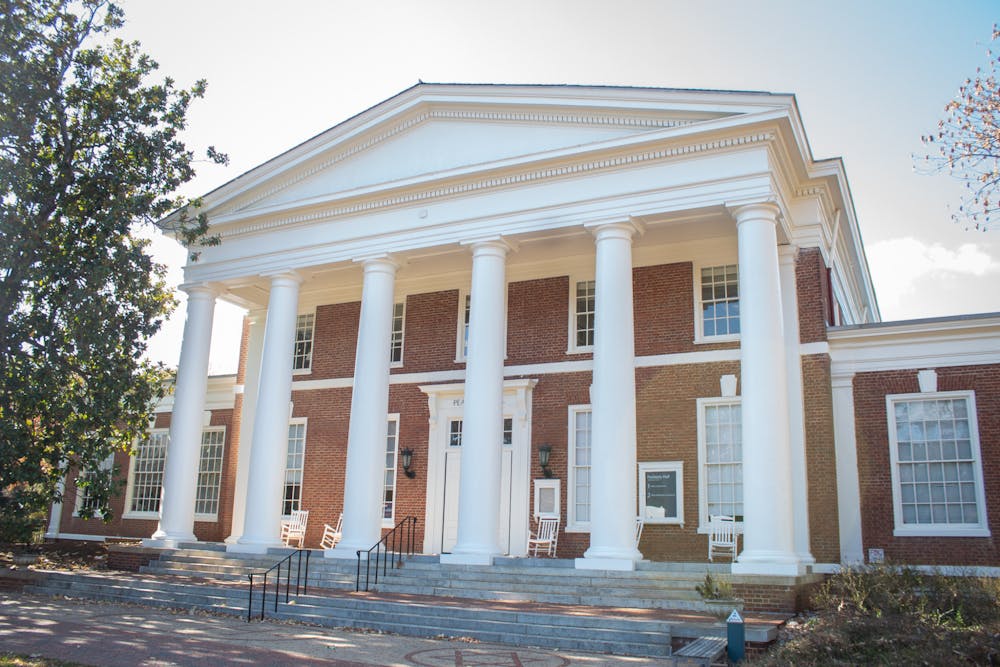The college application process is more competitive than ever as the number of college applicants continues to increase and acceptance rates decline at universities across the nation. Numerous applicants opt to apply during the early decision round — a binding system that provides students with earlier notification of an admission decision — due to a number of reasons, ranging from personal preference to higher than average rates of admission. A drawback of students applying early decision is that they are given their acceptance and financial package simultaneously, meaning they often forgo knowing what aid they might receive from other colleges before they ultimately have to commit to a school. This puts applicants reliant on aid — who are primarily minority students — at a disadvantage.
The takedown of affirmative action only exacerbates this problem, as this ruling previously safeguarded equal opportunity for marginalized communities in admission decisions. Higher acceptance rates during the early decision process automatically put lower socio-economic status applicants at a disadvantage, as they are posed with a double-edged sword — apply early decision when acceptance rates are higher but without the knowledge of financial offers across the table, or apply through the regular round knowing financial status but risk not being admitted at all.
Removing early decision, a recently popular decision numerous institutions have decided to make, is a viable solution to level the playing field for applicants who will rely on financial awards to decide which university they will attend, and will help attract a more diverse pool of students to the University. The Department of Education reported that while only 40 percent of white students qualified for need-based aid, an overwhelming 70.6 percent of Black students qualified for such aid. College Board, a reputable, non-profit college-readiness organization that administers services like the SAT, advises that those who are financially insecure do not apply through the early decision round. While some students have the luxury of attending a dream school as long as they are accepted, applicants with less financial leniency are often forced to compare financial aid awards before settling on an institution.
Moreover, the affirmative action ban only exacerbates the admissions process for marginalized communities and undermines their opportunities to contribute to the diverse learning environments that institutions like the University claim to foster. As racial minorities and those who are financially insecure are unable to make the commitment to applying through a binding system, the removal of early decision would serve as a step in the right direction toward promoting inclusivity and equity. As a public institution that claims to promote and serve citizens of Virginia, the University should abandon the early decision round to expand opportunities for those of lower socio-economic statuses and embrace diversity in admitted classes.
Granted, while the early decision round might hurt economically-disadvantaged applicants, it helps institutions predict their yield — the percentage of accepted students attending a school — and ensure their reputations remain intact by enrolling a certain number of students with a certain pedigree. Thus, binding, early decision acceptances produce a good yield. This holds true for the University’s acceptance rates. In the past year, the University’s early acceptance rate has stayed at around 26 percent, while the regular decision round has fallen to a mere 21 percent. Such students experience a cyclical series of disadvantages — not being able to apply early decision due to the need for comparing financial aid packages, then being faced with rejections and waitlists during regular decision rounds due to lower acceptance rates. In turn, applicants who are financially secure and willing to pay universities to attend at a higher price experience the comforts of higher acceptance rates and a lack of a struggle to seek the best financially viable option.
The University’s admissions system can not and should not be a factor of hindrance in one’s search for higher education. The University claims to support a diverse community and develop citizen leaders and professionals — and now it has been given the opportunity to uphold this responsibility. Serving the Commonwealth of Virginia also includes ensuring an equitable admissions system that is dedicated to equal opportunity across the board — whether it be identity, race or socio-economic status.
Farah Eljazzar is a Viewpoint Writer who writes about Identity and Culture for The Cavalier Daily. She can be reached at opinion@cavalierdaily.com.







